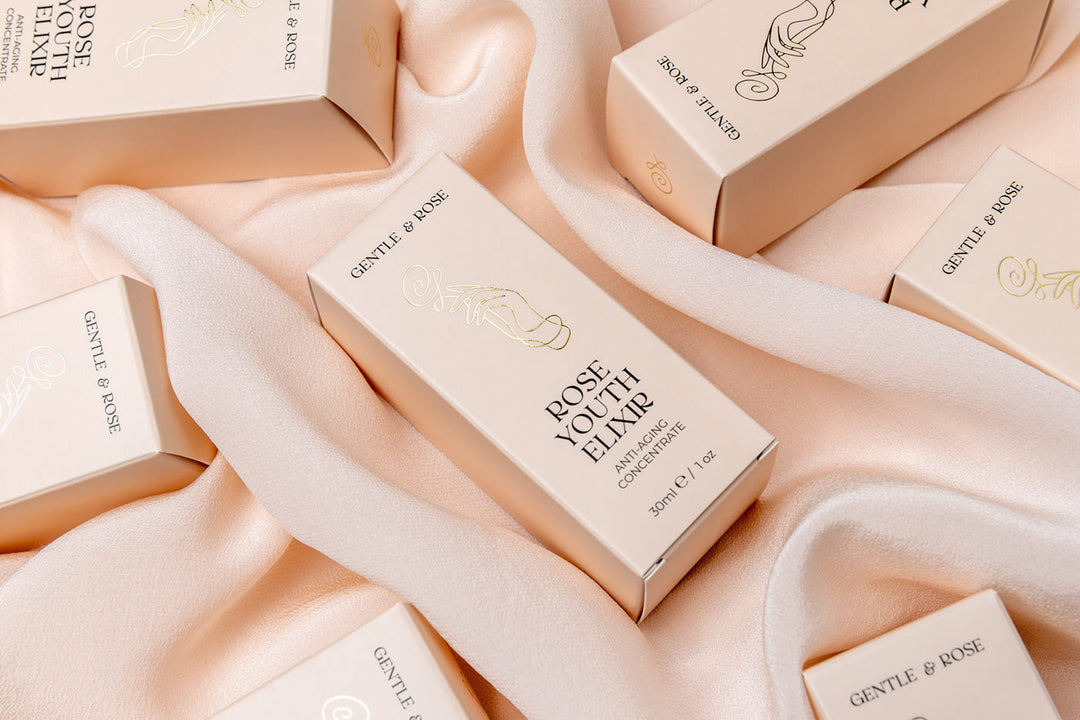How Hormones Affect Your Skin Through The Years

Our skin is a direct reflection of the hormonal changes that occur throughout different life stages.
From the tumultuous teenage years through the phases of menopause, our skin goes through distinct transformations—each requiring its own approach to skincare.
In this article, we will explore how hormonal shifts affect the skin during teenage years, in your 20s, pre-menopause, during menopause, and post-menopause, and how incorporating effective products can help maintain youthful, radiant skin during these pivotal moments.
Teenage Years and Early 20s: The Surge of Hormones
During adolescence and early adulthood, the body undergoes rapid changes, many of which are driven by a surge of hormones such as androgens and estrogen.
Androgens, especially testosterone, increase the production of sebum, the natural oil that helps keep skin moisturised.
However, this surge often leads to clogged pores, oily skin, and acne—common complaints among teens and young adults.
For those in their early 20s, hormone levels begin to stabilize, but imbalances can still result in breakouts, particularly around the menstrual cycle.
Additionally, sun exposure and the early signs of environmental damage start to accumulate, making this an important time to invest in protective and preventive skincare.
Skincare Solution: Preventing Acne and Premature Aging

At this stage, it’s crucial to balance sebum production while introducing ingredients that prevent early signs of aging. Rose Youth Elixir is an ideal addition to your routine because it contains 2% Bakuchiol, a plant-based alternative to retinol.
Bakuchiol is gentle enough for younger skin prone to breakouts, but it also stimulates collagen production, preventing fine lines from forming prematurely.
Paired with hyaluronic acid, which locks in hydration without clogging pores, this elixir helps maintain smooth, balanced skin.
Pre-Menopause (Early 40s to Mid-40s): A Slow Decline in Estrogen
As women move into their early 40s and mid 40s, estrogen levels begin to decline, though not drastically yet.
This shift has subtle effects on the skin. Estrogen plays a key role in maintaining skin thickness, moisture levels, and elasticity.
As its levels decrease, women may start to notice the formation of fine lines, a dull complexion, and uneven skin tone. Collagen production, which keeps skin firm, starts to slow down during this stage, resulting in the first signs of sagging.
Skincare Solution: Boosting Collagen and Hydration
During this period, products that boost collagen and enhance hydration are essential.
This is where the Rose Youth Elixir really shines. Its rose oil offers antioxidant protection, combating free radicals that accelerate aging, while the Bakuchiol helps maintain collagen levels without the irritation that retinol can sometimes cause.
Incorporating this elixir into your routine can help slow down the visible signs of ageing and keep skin looking radiant and supple.
Menopause (Mid-40s to 50s): A Dramatic Drop in Estrogen

Menopause typically begins in the mid-40s to 50s, and with it comes a steep decline in estrogen levels. This hormonal change significantly impacts the skin, leading to dryness, thinning, and increased sensitivity.
The loss of estrogen also accelerates the breakdown of collagen and elastin, which results in deeper wrinkles, sagging, and loss of firmness.
Many women also notice that their skin becomes less able to retain moisture, leading to a rough texture and a dull appearance.
Skincare Solution: Strengthening and Restoring Skin Elasticity

At this stage, the goal is to restore hydration, protect the skin barrier, and encourage collagen production. Rose Youth Elixir addresses these needs with its powerful combination of hyaluronic acid and rose oil.
Hyaluronic acid provides deep hydration, ensuring the skin remains plump and smooth, while the rose oil works to soothe and protect delicate skin. Bakuchiol continues to support collagen production, helping to maintain skin elasticity and reduce the appearance of deep wrinkles.
Post-Menopause (50s and Beyond): Continued Decline in Collagen and Skin Density
After menopause, estrogen levels remain low, and the skin continues to experience significant changes.
Without estrogen to support skin thickness and hydration, skin can become much thinner, drier, and more prone to irritation. Collagen loss also continues, contributing to a lack of firmness and deeper lines.
Additionally, the skin’s ability to repair itself slows down, making it more vulnerable to external stressors like UV rays and pollution.
Skincare Solution: Enhancing Skin Repair and Hydration

Post-menopausal skin requires intense hydration and a focus on skin barrier repair. The Rose Youth Elixir is a perfect solution for this stage, as its hyaluronic acid deeply moisturises and plumps the skin, while rose oil helps rebuild the skin barrier and provide soothing comfort to sensitive areas.
Additionally, Bakuchiol works to continually stimulate collagen production, addressing the loss of skin density and reducing the appearance of deep wrinkles.
Why Rose Youth Elixir is Your Perfect Anti-Ageing Companion
No matter what stage of life you're in, hormonal changes will inevitably impact your skin. The key to navigating these changes is adjusting your skincare routine to meet the evolving needs of your skin.
Our Rose Youth Elixir has been formulated to offer a holistic solution at every stage.
With 2% Bakuchiol to promote collagen, hyaluronic acid to ensure deep hydration, and rose oil for antioxidant protection and skin barrier repair, this elixir is designed to keep your skin radiant and youthful, regardless of hormonal fluctuations.
By understanding the relationship between hormones and skin, and choosing products that address these changes, you can maintain a vibrant, glowing complexion through every phase of life.
With the right care, you’ll feel confident and beautiful, no matter what stage you’re in.






Laat een reactie achter